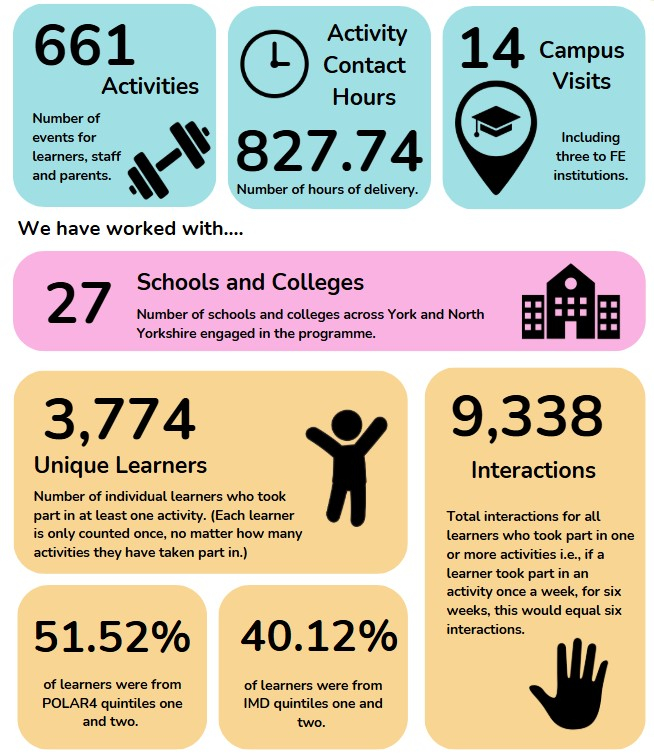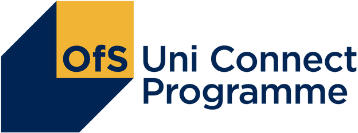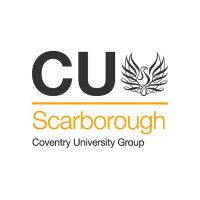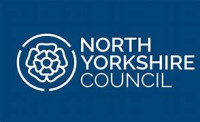At Inspiring Choices, we place great importance on both research and evaluation to ensure that our work is effective, informed, and responsive to the needs of those we support. Through ongoing research and rigorous evaluation, we gain valuable insights that shape our practices and drive improvements in the services we provide.
Detailed information on our research initiatives and evaluation processes can be accessed through the sections to the left of the screen.
Data Snapshot 2023/2024
We worked with:

Programme Monitoring
As a condition of Uni Connect funding, the Office for Students require partnerships to track all learners engaged with their activity. The includes learners who live in both target and non-target wards. We are required to use an OfS-approved tracking service; Inspiring Choices use the Higher Education Access Tracker (HEAT). The HEAT service was developed by the sector to evaluate the efficacy of widening participation outreach teams. We have both Data Sharing and Service Level Agreements in place with our schools and colleges which details how we will collect this data to enable the required tracking. Participants are issued with our Privacy Notice so they understand how their personal data is being used. The tracking data enables us to understand how participation in Inspiring Choices activity impacts progression to higher education and is an essential part of evidencing the impact of Uni Connect.
Personal Data
To find out more about what we do with the data we collect, please download our Privacy Notice.












